 |
| La Presidence Internationale de l' AUSC a Kigali -Rwanda lance appel a la Vote massive pour Latifa Hassan Yari leader de AUSC/Niger club EST qui a déjà franchi la première étape pour avoir était Lauréate de Niamey, la campagne électorale des projets est lancée par E- Takara. Mercredi le 6 Decembre ,2017;Kigali-Rwanda. |
Chers honorables leadeurs de l'AUSC ,
Bonjour ! Mot d' ordre.
Tous les leaders de AUSC national et international sont pris de bien vouloir voté pour l' application de *Latifa Hassan Yari* leader de AUSC/Niger club EST.
Merci aussi d' inviter vos amis à voter pour elle. La
victoire doit être dans notre cercle. Merci pour votre fidélité chers
honorables.
C'est ainsi que mon parole d'aujourd'hui concerne la
campagne électorale des projets lancé par E- Takara.
Notre cher ami
Latifa a déjà franchi la première étape pour avoir était Lauréate de
Niamey. Maintenant l' Affrontation est devenue internationale.
Nous
devons tous conjuguer nos efforts pour battre cette campagne. Depuis
deux jours nous sommes sur le terrains ensemble avec des amis pour
parler et convaincre les gens à voter pour elle. Mais cela n'est pas
suffisant car le vote est nationale.Toutes les régions du niger sont
concernées.
Très bien !!! Nous sommes tous la réussite de son projet et
pour cela il faudrait l'engagement de tous les leaders AUSC ainsi que
de leurs proches.
Quant-à moi Je suis entrain de faire tout ce qui est
de mon possible pour que cela soit surtout que l'application "Saro app"
est une idée extraordinaire qui doit mériter le soutien de toute
personne aspirant au bien-être des populations et ainsi révolutionner le
Niger et au-delà l'Afrique.
Message original :
Alors les règles sont simples : pour voter sur Facebook il faut d'abord être fan de la page Facebook de E-Takara, et aussi ,
Pour ceux en Niger Il faut voter avec vos SIM en envoyant envoyer F3 au 1812* L' envoie est totalement gratuit .
Pour ceux en Niger Il faut voter avec vos SIM en envoyant envoyer F3 au 1812* L' envoie est totalement gratuit .
Pour la diaspora verfiez les instructions d' envoyer sur la Photo du profile si haut donnée et au +18317131357
*Candidate:Salissou Hassan Yari Latifa*
*Candidate:Salissou Hassan Yari Latifa*
Le Directeur de campagne : Ahmed Tidjani Dan Nouhi, AUSC Niger National Representative.
IRAGUHA BANDORA Yves
Kigali-Rwanda.
Welcome to the PAUWES 2018
Kigali-Rwanda.
Welcome to the PAUWES 2018
Research-2-Practice Forum
Linking
research and development as a contribution to achieve the goals of the
Agenda 2063 of the African Union is a priority for the Pan African
University of the African Union. The Research-2-Practice Forum aims to
provide a platform for experts/scientists, education leaders, decision
makers, entrepreneurs, private and public sector, policy makers, civil
society actors and institutions interested or active in applied and
practice-oriented research for development to discuss state of the art,
challenges and innovative solutions in the areas of renewable energy,
water and climate security and build strategic partnerships.
| Application & Submission Deadlines | ||
| Steps | Date | |
| 1. | Submission of abstracts | 8th Jan 2018 |
| 2. | Abstract Acceptance Notification | 26th Feb 2018 |
| 3. | Presenter Participation Confirmation | 11th Mar 2018 |
| 4. | Publication of the programme | 15th Mar 2018 |
Join the Res-2-Prac Discussions on the PAUWES Community of Practice
Apply now to the 2018 Research-2-Practice Forum by submitting your contribution
PAUWES Research-2-Practice Forum 201 ,April 16-18, 2018 - Tlemcen, Algeria
130Days04 Hours08 Minutes07 Seconds
African Union – Agenda 2063
The
guiding vision of the Agenda 2063 of the African Union is “An
integrated, prosperous and peaceful Africa, an Africa driven and managed
by its own citizens and representing a dynamic force in the
international arena”. The call for action of the Agenda 2063 with
regards to energy refers to “harnessing all `African energy
resources to ensure modern, efficient, reliable, cost effective,
renewable and environmentally friendly energy to all African households,
businesses, industries and institutions, through building the national
and regional energy pools and grids,”. The Africa Water Vision 2025 and aspiration seventeen of the Agenda 2063 focus on the fact that “Africa
shall have equitable and sustainable use and management of water
resources for socio-economic development, regional cooperation and the
environment”. With regards to climate change, aspiration seventeen of the Agenda 2063 requires that “Africa
shall address the global challenge of climate change by prioritizing
adaptation in all our actions, drawing upon skills of diverse
disciplines and with adequate support (affordable technology development
and transfer, capacity building, financial and technical resources) to
ensure implementation of actions for the survival of the most vulnerable
populations, including islands states, and for sustainable development
and shared prosperity.”
PAUWES
A key
role of PAUWES is seen in providing scientific and technological
solutions to support a sustainable socio-economic development in the
continent, science-based advice to policy makers on a local, national,
regional and Pan-African level. PAUWES not only provides scientific
knowledge for existing strategies but also acts as a think tank and
thought leader in shaping future strategies.
The
African Union Science, Technology and Innovation Strategy for Africa
2024 (STISA-2024) places science, technology and innovation at the
epicentre of Africa’s socio-economic development and growth. Research,
particularly applied research, can be considered as a tool and an
enabler for achieving continental socio-economic development goals in
order to accelerate Africa’s transition to an innovation led, knowledge
based economy.
The lack
of institutional networking is still a major challenge in the African
research and educational landscape. The PAU as a whole aims to
contribute to the establishment of networks in Africa and PAUWES aims to
be the hub of a Pan-African research network in the area of energy,
water and climate change.
Research-2-Practice Forum
Linking
research and development as contributions to achieve goals of the Agenda
2063 is a priority for the Pan African University of the African Union.
Applied research, networking and cooperation with strategic partners
are essential pillars in this endeavour. In order to promote and support
applied and practice-oriented research and strategic partnerships on
renewable energy, water and climate security in Africa, the Pan African
University Institute for Water and Energy Sciences (PAUWES) with support
from the German Government and in cooperation with a consortium of
German universities (UNU-EHS, ZEF and ITT) led by UNU-EHS and the
University Abou Bekr Belkaid in Tlemcen are jointly organizing an
international forum in Tlemcen, Algeria from 16-18 April 2018.
The event builds on the integration of the following complementary components:
- Research components in line with the support of the German Federal Ministry for Education and Research to support synergies with institutions dealing with research questions addressed by ongoing research projects and priorities of the research agenda at PAUWES.
- Strategic networking components in line with the support of the German technical cooperation of the German Federal Ministry of Economic Cooperation and Development though the “Deutsche Gesellschaft für Internationale Zusammenarbeit (GIZ) GmbH” to support institutional development of the institute.
Call for Contributions
The call for extended abstracts
aims to create vertical and horizontal linkages between the research and
practice stakeholders in the priority areas below. Fundamentally, the
forum provides researchers and practitioners in civil society, private
sector and public institutions an opportunity to feed into each other’s
value chain where practice informs new knowledge and research informs
change at various societal and institutional levels.
The main topics of the extended
abstract should fit within the following areas which are in line with
ongoing projects and priorities of the research agenda at PAUWES as
contribution to the Agenda 2063 of the African union:
| Energy |
|
| Water |
|
| Climate Change |
|
| Energy, Water, Climate Change Nexus |
|
Apply Now
First step: Download the submission template that fits your contribution best. Refer to the Call for Contributions for more details about expected contributions. We have templates for…
Research / Scientific Contributions
Contributions from researchers, academia and scientists in line with the priority areas of the call.Research-2-Practice Contributions
Contributions to showcase existing collaborations between practitioners with academic, scientific or research institutions.Practice & Non-Scientific Contributions
Contributions to showcase practice, applied-oriented approaches and initiatives based on real-life scenarios within the priority areas of this call.- Second step: Fill the template with your contribution.
- Third step: Submit your contribution via the submit button below.
Accepted extended abstracts will be compiled in a stand-alone publication with ISBN and distributed among the participants as output of the forum. The opportunity to publish selected high quality papers in a special issue of a scientific journal will be investigated.
All forum participants will have an opportunity to vote for the best contribution and best poster (online voting) and the winner(s) will be announced during the closing session.
Instructions: Extended abstracts must be submitted in accordance with the related form and written in English.
Deadline: The deadline for the submission of extended abstracts is 8th January 2018.
Submission link: Proposals must be uploaded via https://easychair.org/conferences/?conf=res2prac.
Selection: The
selection process will be carried out by a Scientific Committee of
international experts. Notification of acceptance will be in March 2018.
We actively encourage applications by female researchers who will have a special attention/consideration.
Create Your EasyChair Account
Only submissions uploaded via EasyChair will be accepted.
If you
don’t have an EasyChair account you can easily create it by clicking the
submit button below. For further instructions click the screenshots on
the right.
Submit Your Contribution
Forum Committee
Symposium Chair
Experts Committee
Organizing Committee
- Prof. Dr. Abdellatif Zerga – Director, Pan African University Institute of Water and Energy Sciences (PAUWES)
- Prof. Dr. Jakob Rhyner – Vice-Rector for UNU in Europe and the Director of the UNU Institute for Environment and Human Security
Experts Committee
- Prof. Dr. Abdellatif Zerga – Director, Pan African University Institute of Water and Energy Sciences (PAUWES)
- Prof. Dr. Jakob Rhyner – Vice-Rector for UNU in Europe and the Director of the UNU Institute for Environment and Human Security
- Prof. Dr. Christian Borgemeister – Director, Center for Development Research (ZEF) University of Bonn
- Prof. Dr. Ramchandra Bhandari – Professor of Renewable Energy Systems and Vice-Director at ITT, Cologne University of Applied Sciences
- Prof. Dr. Rabani Adamou, University of Niamey, Niger
- Prof. Dr. Abdramane Ba, University of Science, Techniques and Technology of Bamako, Mali
- Dr. Bernhard Tischbein – Senior Researcher, Center for Development Research, University of Bonn
- Dr. Erick Gankam Tambo – Research Coordinator, PAUWES
- Dr. Amazigh Dib – Private Sector Coordinator, PAUWES
- Prof. Latifa Negadi – Professor, University of Tlemcen
- Prof. Abdelmalek Bekkouche – Professor, University of Tlemcen
- Prof. Lotfi Baghli – Professor, University of Tlemcen
- Prof. Chakib Seladji – Professor, University of Tlemcen
- Prof. Abderrazak Bouanani – Professor, University of Tlemcen
- Prof. Chewki Ziani – Professor, University of Tlemcen
- Dr. Priscilla Achapka – Executive Director, Women Environmental Programme
- Ms. Valerie Geen -Director, Board of the SAEE Confederation & Senior advisor, Industrial Energy Efficiency Division, UNIDO.
- Ms. Anna Ekeledo – CEO, AfriLabs
- Ms. Nekesa Were – Director of Community, iHub
- Ms. Noara Kebir – Managing Director, MicroEnergy International
- Mr. Phumlani Nkontwana – Sustainability Institute and Stellenbosch University
- Dr. Solomon Assefa – Head of Research Africa, IBM
- Prof. Yao Azoumah – CEO, KYA-Energy Group
- Prof. Khellaf Abdallah – Centre for Renewable Energy, Algiers
- Prof. Thameur Chaibi – National Research Institute for Agricultural Engineering, Water and Forestry, Tunisia
- Mr. Niklas Hayek – Project Manager, EU Energy Initiative Partnership Dialogue Facility
Organizing Committee
- Dr. Erick Tambo
- Ms. Margaret Koli
- Mr. David Paulus
- Dr. Navneet Kumar
- Prof. Ramchandra Bhandari
- Mr. Phumlani Nkontwana
Venue
The forum is hosted at the PAUWES institute on the campus of the University of Tlemcen, Algeria.
Partners
Communication Partners
Iraguha Bandora Yves.
Whatsapp: +250736196204.
E-mail: ausc.president.office@gmail.com





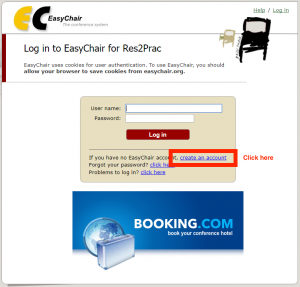

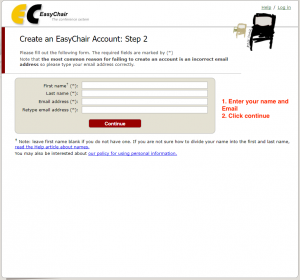
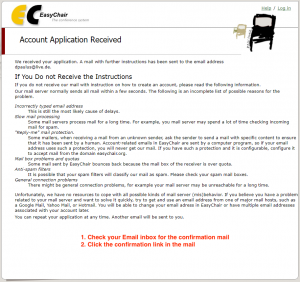
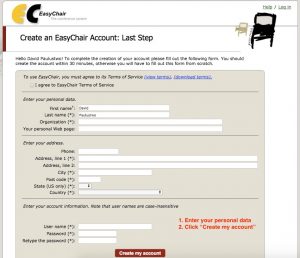
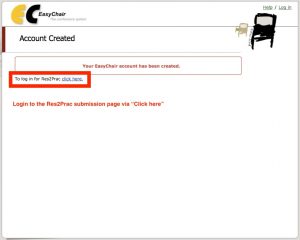


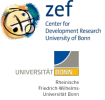

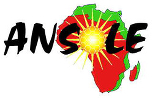


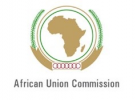
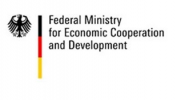
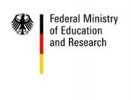
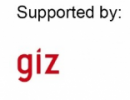
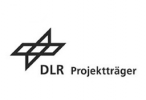
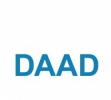


























0 comments:
Post a Comment